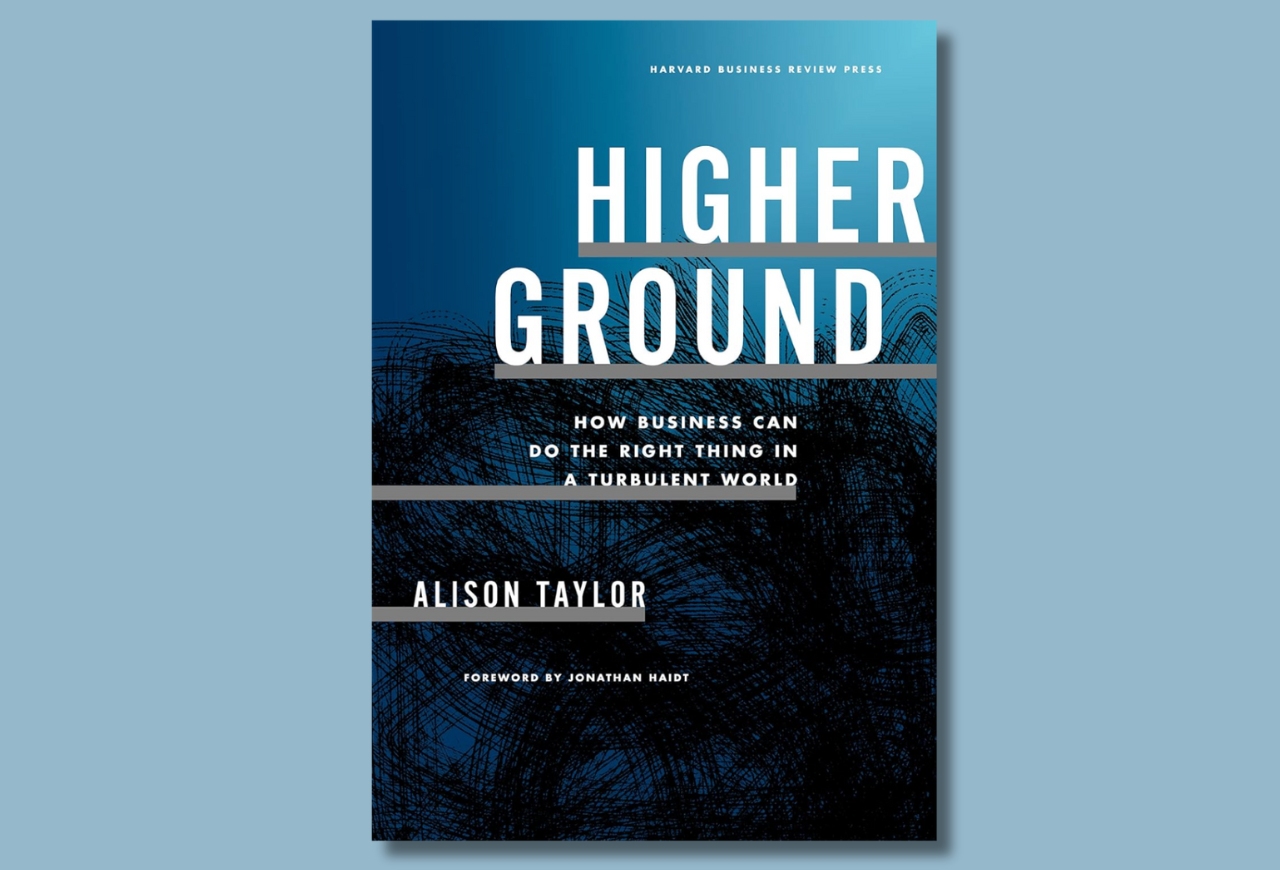The very concepts of capitalism and democracy are being contested, and multiple crises are challenging corporate consensus on addressing broader societal and environmental issues.

In brief
- CEOs have never had so much on their plate, a series of polycrises that together represent almost an earthquake are engulfing them.
- Professor Alison Taylor offers a very practical guide to show them how to reach “higher ground”.
- The solution is to undertake a full human rights impact assessment for your company.
- It certainly is not political interference.
Alison Taylor teaches MBA courses on professional responsibility and business at New York University’s Stern School of Business. Along with Jonathan Haidt she also runs Ethical-Systems.org, a nonprofit that builds a bridge between the academic and business communities.
As Haidt says, she’s no “ivory tower egghead”.
Taylor has worked for 25 years as a consultant to multinational companies, and confesses: “I’ve been pressured by bankers to rewrite due diligence reports so they could greenlight lucrative deals with controversial oligarchs. I’ve watched senior leadership teams mull which prospective scapegoat might best take the hit for their knowing involvement in fraud. I’ve stepped away from a Christmas dinner in London to attend to frightened anti-corruption investigators, stranded in a remote stretch of northern Mexico.”
She has an attractive, hands-on, practical approach: “I’ve never come across a company that gets everything right, and I cannot name good or bad businesses—only better and worse ones.”
It makes this book a very practical guide for CEOs.
Battered and bewildered
And these poor executives need help. In his foreword Haidt asks them: “Does it seem as though every day you’re walking through a political minefield, everyone is mad about something, everything is moving faster, and generally, it’s all just very strange? You’re not imagining it. Something really big is happening.”
Taylor cites Starbucks CEO Laxman Narasimhan who spoke of “a crisis of disconnection, where loneliness, division, and polarisation have become far too common”.
There is also the story of Yvon Chouinard, whose attempt to convert Patagonia, the sustainable clothing company, from a business into a foundation, was hit with a barrage of criticism. “Even turning your profoundly successful company into a charity won’t suspend society’s “gotcha” mindset for long.”
Indeed, says Taylor: “Contemporary society is so fragmented (both within and among countries and cultures) that the very concepts of capitalism and democracy are being contested.”
All this means that “When the ground is shifting, neither higher walls nor a faster pace will help. It’s time to seek firmer footing.” Thankfully Taylor’s here to help the climb to higher ground.
The challenge and the solution
As Taylor sees it: “Such crises as climate change, Covid-19, and geopolitical turmoil, continually spotlight a glaring lack of consensus on how far companies should pursue efforts to address systemic societal and environmental challenges. It’s easy to say companies should register a positive impact. The devil lurks in how.”
The solution is at hand. “A full corporate human rights impact assessment is the best way to understand your real-world stakeholder impacts. Gaining this fundamental understanding of impact will enable you to determine environmental and social priorities, shape resilient ethical commitments, manage your externalities, and develop trusting relationships.” And, for a new project or investment, “you should also consider what the impact would be if you do nothing.”
So it was right on one level for BrewDog, the Scotland-based craft brewery, to outspokenly criticise the World Cup. “Football is meant to be for everyone. But in Qatar, homosexuality is illegal, flogging is an accepted form of punishment, and it’s OK for 6,500 workers to die building your stadium,” said the firm on its website.
But finger-wagging failed because the company hadn’t addressed its own internal employee impact. As Taylor says, “If you wish to prove your company has values, you cannot treat how you impact your employees… as a separate concern from how you impact the world.”
Political direction
But her most important contribution is on the current divisive ESG debate in the US . Michael Bloomberg asserts that “Republicans need a crash course in capitalism,” while Mike Pence says, “ESG is a pernicious strategy, because it allows the left to accomplish what it could never hope to achieve at the ballot box.”
In October 2022, the former CEO of Unilever, Paul Polman, argued that business should “step in” to back legislation aimed at abolishing the death penalty in Ohio, adding that the death penalty is “fiscally irresponsible.”
Taylor has little time for this approach. “Although aspects of the US criminal justice system bear clear human rights implications, your business is not causing or contributing to them, unless it runs private prisons or manufactures drugs or equipment used in executions.”
She warns against situations where “the C-suite makes top-down decisions…often reflecting its biases and proclivities”. She also cautions that: “A corporation is not a democracy and stakeholders aren’t an electorate. Companies have neither grounds nor governance mechanisms to gather stakeholder (or even employee) perspectives in a fair, democratic way.”
“Few leaders may agree at this time,” she concludes, “but halting direct political contributions would be a smart, forward-looking move.” Though she also adds that companies would be free to lobby ethically and provide the expertise needed in helping craft effective public policy.
Can CEOs resist temptation?






